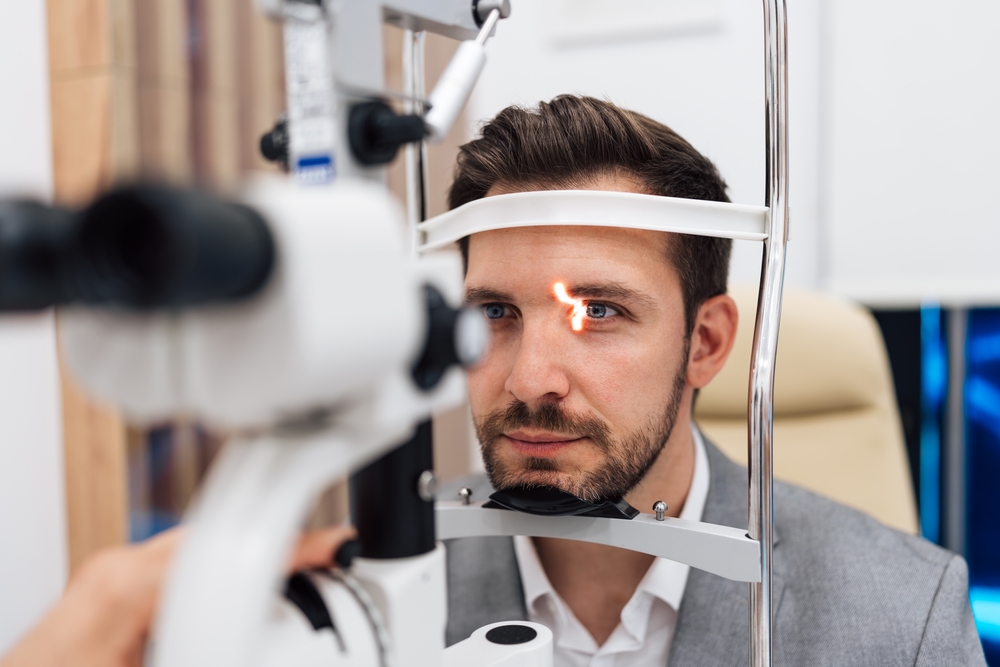Modal Title
Lorem ipsum dolor, sit amet consectetur adipisicing elit. Iusto porro officiis beatae accusantium nam quis soluta? Sapiente in non inventore, explicabo distinctio, nostrum impedit delectus obcaecati corporis officiis, nihil repellendus.

Lorem ipsum dolor, sit amet consectetur adipisicing elit. Iusto porro officiis beatae accusantium nam quis soluta? Sapiente in non inventore, explicabo distinctio, nostrum impedit delectus obcaecati corporis officiis, nihil repellendus.

Blog:Can Your Optical Exam Uncover Early Signs of Other Health Problems?

When most people think of an eye exam, they usually associate it with checking vision or updating a prescription for glasses or contact lenses. But a comprehensive eye exam does far more than determine how clearly you see—it can also uncover early signs of various health conditions, some of which may have no obvious symptoms in their early stages.
A comprehensive eye exam is a thorough evaluation of your visual system and overall eye health. At Inland Optometry, our optometrists conduct a series of tests to assess your visual acuity, eye coordination, focusing ability, and internal and external eye health. We use specialized instruments to examine the retina, optic nerve, and blood vessels in the eye, providing valuable insight into not just ocular conditions but also systemic health issues.
Unlike a basic vision screening, which simply checks how well you can see, a comprehensive eye exam provides a deeper look at your eye structures and can detect signs of more serious conditions before symptoms even begin.
Your eyes are closely connected to many systems in your body, making them a valuable tool for detecting a variety of health concerns. Here are a few examples of what a comprehensive eye exam can reveal:
Eye Conditions
Glaucoma: Increased pressure in the eye can damage the optic nerve. It often develops without symptoms, but early detection is key to preserving vision.
Macular Degeneration: A leading cause of vision loss in older adults, this condition can be detected early through a retinal exam.
Cataracts: Clouding of the eye’s lens can be observed during an exam, even in early stages.
Diabetic Retinopathy: Changes in the blood vessels of the retina can be one of the first signs of diabetes-related complications.
Systemic Health Problems
Diabetes: Subtle changes in the blood vessels of the eye may indicate undiagnosed or uncontrolled diabetes.
High Blood Pressure: Damage or narrowing of the eye’s blood vessels can be an early sign of hypertension.
High Cholesterol: Yellowish plaques in the blood vessels of the retina may point to elevated cholesterol levels.
Autoimmune Diseases: Inflammation in the eye can be linked to conditions such as lupus or rheumatoid arthritis.
Neurological Conditions: Swelling of the optic nerve can suggest increased intracranial pressure, which may be tied to serious brain or spinal conditions.
Many health conditions develop silently, without noticeable symptoms until they’ve progressed. Eye exams can often detect these issues at an early stage, when intervention is most effective. Early detection not only helps preserve your vision but can also prompt timely treatment of underlying health concerns.
Even if your vision seems fine, an annual eye exam can serve as a valuable preventive health measure. Children, adults, and seniors all benefit from routine eye care tailored to their age and risk factors.
Your eyes are more than windows to the world—they are windows to your health. We believe in a proactive approach to eye care, using comprehensive exams to detect potential problems early and help you maintain both visual and overall wellness.
Contact Inland Optometry to schedule your comprehensive eye exam and take an important step toward protecting your vision and your well-being. Visit our office in Fontana, California, or call (909) 463-4655 to book an appointment today.